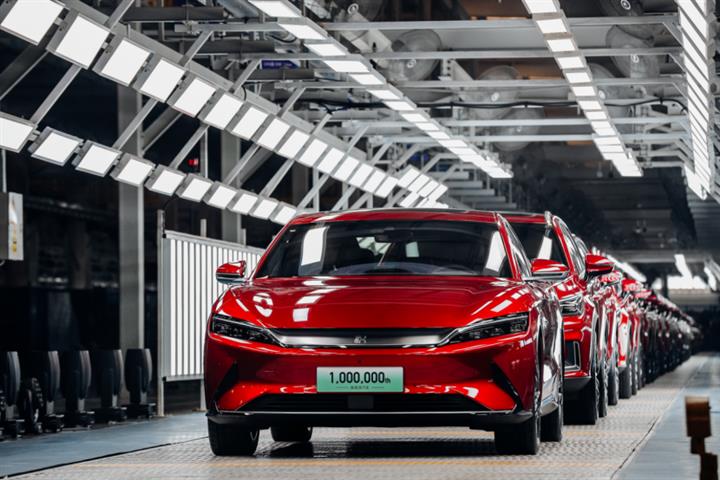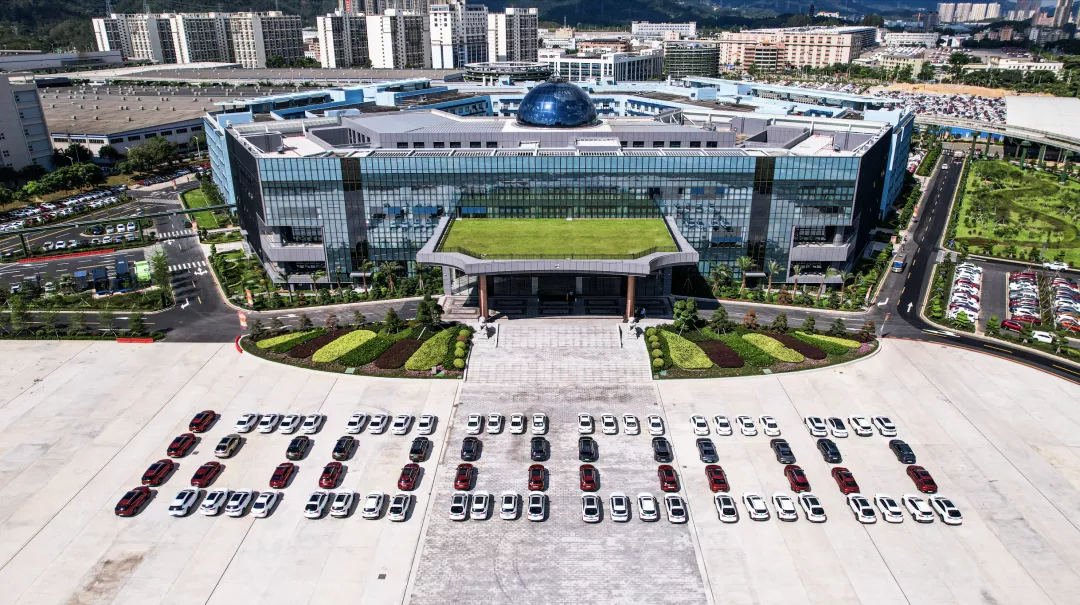 BYD to Begin Europe NEV Exports After Hitting Millionth Vehicle Mark in April
BYD to Begin Europe NEV Exports After Hitting Millionth Vehicle Mark in April(Yicai Global) May 21 -- BYD will begin exporting electric cars to Europe, starting with Norway, after the Chinese automaker became the third globally to produce its millionth new energy vehicle.
The first 100 of 15,000 all-electric Tang sport utility vehicles destined for Norway this year are being shipped out this month, the Shenzhen-based company said on May 19. Norway is also the first European stop for China’s Nio, Xpeng Motors, and SAIC Motor. BYD expects to deliver its first batch to Norwegian buyers in the third quarter.
BYD’s millionth NEV rolled of the assembly line on April 19, putting the automaker among the elite company of Tesla and Toyota Motor. The Japanese carmaker has sold more than 15 million hybrid electric vehicles worldwide since 1997.

At a ceremony to mark the occasion, BYD’s founder and chairman, Wang Chuanfu, handed over the millionth vehicle to Mario Ho, a son of Macau casino tycoon Stanley Ho, who died last year.
BYD is “standing at a new starting point,” Wang said, attributing the firm’s achievement, which has been 17 years in the making, to innovative technologies.
From Batteries to Electric Cars
Founded in 1995, BYD started out as a manufacturer of nickel-chromium and rechargeable batteries, and later expanded into lithium-ion batteries. Wang was dubbed China’s Battery King.
It got into car-making in 2003, when China’s auto production ranked fourth after the United States, Japan and Germany with growth of 35 percent. China’s market was then dominated by foreign brands that had set up joint ventures with state-owned firms. BYD unveiled its first all-electric concept car, the ET, the following year. The world’s first mass-produced plug-in hybrid, the F3DM, followed in 2008.
BYD’s lineup now includes fuel-driven vehicles, plug-in hybrids and battery-powered cars, Wang said. BYD has launched three plug-in dual mode hybrids priced at about CNY200,000 (USD31,100) each, similar to traditional gas cars.
In the all-electric field, BYD has announced that its vehicles will be powered by blade batteries. Electric vehicles built on the e-platform, which was debuted at the Auto Shanghai in April, can accelerate to 100 kilometers an hour in just 2.9 seconds, travel 1,000 kilometers on a full charge, or 150 km on a five-minutes charge.
“A total of 21,000 patents of new energy vehicles have been granted so far, making BYD number one in this field,” Wang said.
Battery, Chip Unit Listings
BYD also makes pure-electric buses, trucks and railroad trains. As the second-largest maker of power batteries and semiconductors, BYD will split the two businesses and list them separately. Its chip-making arm will go public on Shenzhen’s startup board, the ChiNext, according to a company statement a week ago.
Replacing combustion engine-powered vehicles with NEVs, especially battery electric models, is crucial for reducing dependence on fossil fuels and achieving the goal of peak carbon by 2030 and carbon neutrality by 2060, Wang said.
China aims to hit peak emissions by 2030 and achieve carbon neutrality by 2060, President Xi Jinping announced at a United Nations General Assembly meeting last September.
The first of BYD’s NEV models headed for Europe, the Tang compact crossover, is the second model of BYD's Dynasty series passenger car and gets its name from the Tang Dynasty, the most prosperous of ancient China’s. Its all-electric version debuted in 2018. It is priced at CNY279,500 to CNY314,800, has a 86.4 kWh battery, and a range of up to 565 km.
BYD established its overseas business long before exporting its NEVs. The firm set up its first overseas branch in the Netherlands in 1998, and has gradually grown its international customer base for pure electric buses since the first 35 went to Amsterdam Airport Schiphol in 2013. BYD electric buses ply the roads of about 300 cities worldwide.
Editor: Tom Litting